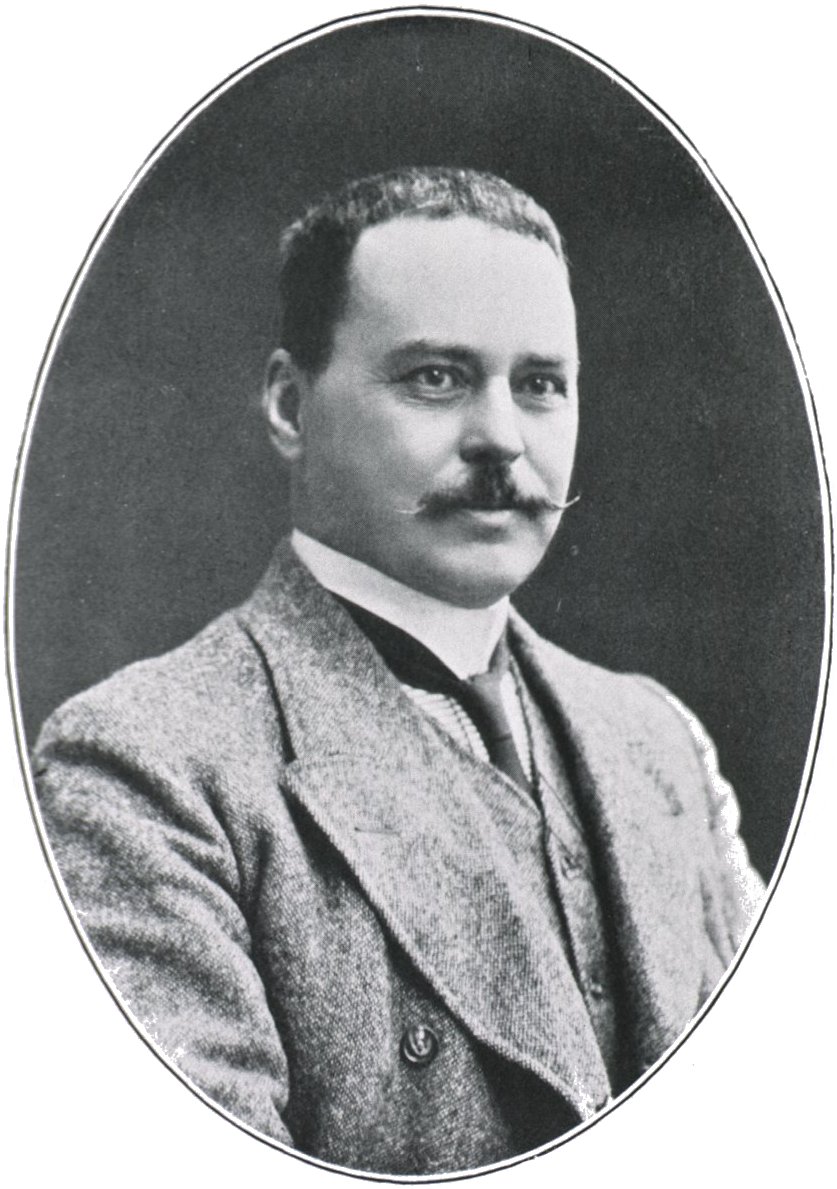
Ronald Ross
Sir Ronald Ross KCB KCMG FRS FRCS[1][2] (13 May 1857 – 16 September 1932) was a British medical doctor who received the Nobel Prize for Physiology or Medicine in 1902 for his work on the transmission of malaria, becoming the first British Nobel laureate, and the first born outside Europe. His discovery of the malarial parasite in the gastrointestinal tract of a mosquito in 1897 proved that malaria was transmitted by mosquitoes, and laid the foundation for the method of combating the disease.
For other people named Ronald Ross, see Ronald Ross (disambiguation).
Ronald Ross
13 May 1857
16 September 1932 (aged 75)
British
Discovering that the malaria parasite is transmitted by mosquitoes
- Cameron Prize for Therapeutics of the University of Edinburgh (1901)
- FRS (1901)[1]
- Nobel Prize in Physiology or Medicine (1902)
- Albert Medal (1923)
- Manson Medal (1929)
Medicine
Presidency General Hospital, Calcutta
Liverpool School of Tropical Medicine
King's College Hospital
British War Office
Ministry of Pensions and National Insurance
Ross Institute and Hospital for Tropical Diseases
Ross
Ross was a polymath, writing a number of poems, publishing several novels, and composing songs. He was also an amateur artist and mathematician. He worked in the Indian Medical Service for 25 years. It was during his service that he made the groundbreaking medical discovery. After resigning from his service in India, he joined the faculty of Liverpool School of Tropical Medicine, and continued as Professor and Chairman of Tropical Medicine of the institute for 10 years. In 1926, he became Director-in-Chief of the Ross Institute and Hospital for Tropical Diseases, which was established in honour of his works. He remained there until his death.[3][4]
Early life and education[edit]
Ross was born in Almora, then in the North-Western Provinces of Company-ruled India, north west of Nepal.[1] He was the eldest of ten children of Sir Campbell Claye Grant Ross, a general in the British Indian Army, and Matilda Charlotte Elderton. At age eight, he was sent to England to live with his aunt and uncle on the Isle of Wight. He attended Primary schools at Ryde, and for secondary education he was sent to a boarding school at Springhill, near Southampton, in 1869. From his early childhood, he developed a passion for poetry, music, literature and mathematics. At fourteen years of age he won a prize for mathematics, a book titled Orbs of Heaven which sparked his interest in mathematics. In 1873, at sixteen, he secured first position in the Oxford and Cambridge local examination in drawing.[5]
Although Ross wanted to become a writer, his father arranged enrollment at St Bartholomew's Hospital Medical College in London, in 1874. Not fully committed, he spent most of his time composing music, and writing poems and plays. He left in 1880. In 1879 he had passed the examinations for the Royal College of Surgeons of England, and he worked as a ship's surgeon on a transatlantic steamship while studying for the licenciate of the Society of Apothecaries.[6] He qualified on second attempt in 1881, and after a four-month training at Army Medical School, was appointed a surgeon in the Indian Medical Service on 5 April 1881, assigned to the Madras Presidency.[7][4] Between June 1888 and May 1889 he took study leave to obtain the Diploma in Public Health from the Royal College of Physicians and Royal College of Surgeons, and took a course in bacteriology under Professor E. E. Klein.[3]
Career[edit]
India[edit]
Ross embarked for India on 22 September 1881 on the troopship Jumma. Between 1881 and 1894 he was variously posted in Madras, Moulmein (in Burma/Myanmar), Baluchistan, Andaman Islands, Bangalore and Secunderabad. In 1883, he was posted as the Acting Garrison Surgeon at Bangalore during which he noticed the possibility of controlling mosquitoes by limiting their access to water. In March 1894 he had his home leave and went to London with his family. On 10 April 1894 he met Sir Patrick Manson for the first time. Manson who became Ross's mentor, introduced him to the real problems in malaria research. Manson always had a firm belief that India was the best place for the study. Ross returned to India on P&O ship Ballaarat on 20 March 1895 and landed in Secunderabad on 24 April.[8] Even before his luggage was cleared in the custom office, he went straight for Bombay Civil Hospital, looking for malarial patients and started making blood films.
Literary works[edit]
Ross was a prolific writer. He habitually wrote poems on most of the important events in his life. His poetic works gained him wide acclaim and they reflect his medical service, travelogue, philosophical and scientific thoughts. Many of his poems are collected in his Selected Poems (1928) and In Exile (1931). Some of his notable books are The Child of Ocean (1899 and 1932), The Revels of Orsera, The Spirit of Storm, Fables and Satires (1930), Lyra Modulatu (1931), and five mathematical works (1929–1931). He also compiled an extensive account The Prevention of Malaria in 1910 and another Studies on Malaria in 1928. He published his autobiography Memoirs, with a Full Account of the Great Malaria Problem and its Solution (547 pages long) in 1923. He carefully saved virtually everything about himself: correspondence, telegrams, newspaper cuttings, drafts of published and unpublished material, and all manner of ephemera.[4]